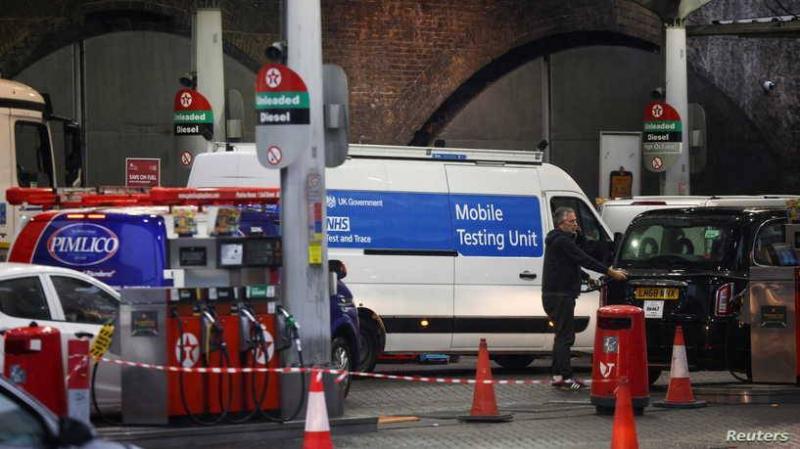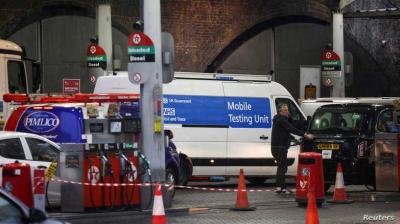Under the title "Fuel Crisis in Britain: Report Mentions Another Cause Beyond COVID," Al-Hurra's translated news highlights that while the shortage of truck drivers in Britain is often linked to the effects of the global pandemic, a report from The Guardian clarifies that the reason for motorists waiting hours at fuel stations cannot be separated from Brexit. The fuel crisis in the country is not related to a shortage of gasoline but rather a deficit of truck drivers exceeding 100,000 in Britain, leading to supply issues across various sectors, including fast-food chains, clothing and food stores, among others.
According to the report, blaming the COVID-19 pandemic is inaccurate, as around 20,000 non-British drivers left the country during the pandemic but have been unable to return due to visa requirements imposed after Britain’s exit from the EU, a fact that has not been publicly addressed. However, Prime Minister Boris Johnson acknowledged the issue last week, offering 5,000 temporary visas for foreign drivers and placing military drivers on standby to operate fuel trucks, a move that has yet to be implemented.
David Henig, a trade policy expert at the Centre for European Economic Policy, believes that "the decision to leave the EU should have been accompanied by internal adjustments to maintain a stable labor market that meets the country’s needs." This is not the first trade disruption experienced by Britain since its departure from the EU in 2020, as British shellfish producers have lost entire markets within the EU due to new health regulations. British consumers have also faced shocks from high tariffs on coffee shipments from Italy.
Tony Travers, a political professor at the London School of Economics, argues that "Brexit was a good step, but British officials mishandled it, leading to several crises attributed to the effects of the coronavirus." Last Tuesday, Johnson attempted to quell public anger by stating that the labor shortage is a global issue, without referencing Brexit. He said, "I would just urge everyone to go about their business in the normal way and refuel in the normal way when needed."
Popular support for Brexit has increased in polls conducted this year, attributed to Britain’s successful COVID-19 vaccination rollout, with some citing the government's ability to secure vaccines and obtain quick approvals due to independence from EU bureaucracy. In December 2020, Britain left the EU after a 48-year relationship. During the December 2019 elections, Boris Johnson's agenda focused on "achieving Brexit" and then addressing British priorities, particularly in public services. The idea was to concentrate efforts and investment in areas that had not benefited from London's financial growth, according to AFP. However, the "levelling up" program through new investments, such as the HS2 high-speed rail line serving Central and Northern England, has been suspended during the pandemic crisis. The government emphasizes that its long-term goals will be maintained and that funds previously sent to the EU will be better spent within Britain.




